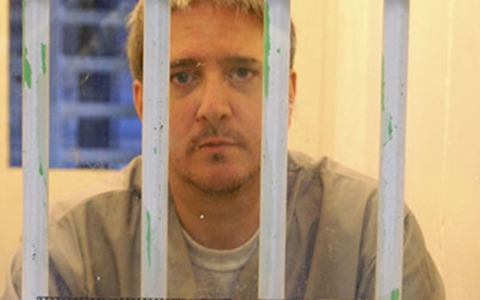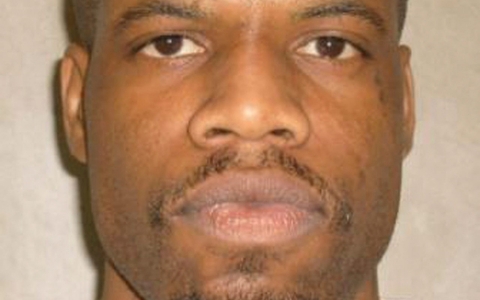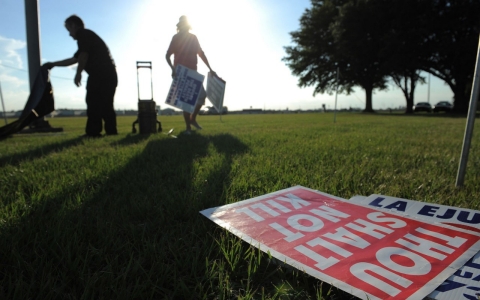Virginia executed Alfredo Prieto, a convicted serial killer who claimed he was intellectually disabled, on Thursday night after a federal appeals court rejected a last-minute appeal to delay his death.
Prieto was pronounced dead at 9:17 p.m. on Thursday at the Greensville Correctional Center in Jarrat. The 49-year-old was injected with a lethal three-drug combination, pentobarbital, a sedative, at the beginning of the execution. That's followed by rocuronium bromide, which halts an inmate's breathing, and potassium chloride, which stops the heart. The pentobarbital, which Virginia received from Texas, was the source of legal controversy.
Prieto, wearing jeans and a light blue shirt, entered the execution chamber at 8:53 p.m. He showed no emotion as he was strapped to the gurney.
"I would like to say thanks to all my lawyers, all my supporters and all my family members," he said, before mumbling, "Get this over with."
The warden stepped behind the curtain at 9:09 p.m. and shortly afterward officials began administering the drugs. Prieto's chest rose and fell several times but he made no sounds. He was motionless after a few minutes.
The 49-year-old had fought to prove that he's intellectually disabled to bar the state from putting him to death. But a federal appeals court in Virginia upheld his death sentence in June and the U.S. Supreme Court refused Thursday to block his execution.
"It is time for this to end," said Margaret O'Shea, a lawyer from Attorney General Mark Herring's office, who urged the judge to dismiss Prieto's appeal on Thursday. "It is time for the carousel to end."
Prieto, 49, a native of El Salvador, was on death row in California for raping and murdering a 15-year-old girl when DNA evidence linked him to the rape and murder of Rachael Raver and the slaying of her boyfriend, Warren Fulton III. Authorities have linked Prieto to several other killings in California and Virginia, but he was not prosecuted for those because he had already been sentenced to death.
Prieto's attorneys said the state has refused to provide important information about the quality of the drugs and they feared that they would cause a cruel and painful death.
After a hearing Thursday, U.S. District Court Judge Henry E. Hudson lifted an order blocking Prieto's execution. Hudson said Prieto's lawyers had not adequately shown that the drugs are unsafe and said it was in the public interest for the execution to proceed as planned.
The judge said an unwarranted delay of the execution would be harmful for those victimized by Prieto's crimes, a harm "magnified here by the appalling number of people that Prieto has killed, raped, or otherwise injured."
Prieto's lawyers immediately appealed Hudson's rulings, but were turned down by the appeals court.
A federal judge in Alexandria had approved an order Wednesday temporarily blocking Prieto's execution and called for a hearing after his attorneys raised concerns about one of the lethal injection drugs that the state intends to use.
But the hearing was canceled after the case was transferred to a new judge in Richmond.
Prieto's attorneys had urged the high court Tuesday to delay his execution so he can continue to fight his death sentence in California, saying he would likely be deemed a person with an intellectual disability if granted the opportunity to pursue his appeal.
"There is a substantial likelihood that he's intellectually disabled, but he's never had a fair and reliable hearing to prove it," wrote Hilary Potashner, a federal public defender based in Los Angeles. "Without a stay, it is likely that the commonwealth of Virginia will execute an intellectually disabled man."

Death penalty opponent Sister Helen Prejean says inmate Richard Glossip's case has reshaped American views on execution

Oklahoma wants to keep the public from knowing the doctor responsible for the Clayton Lockett execution

Sixty-three percent of Americans favor the death penalty – about the same as in 2008, according to Gallup





Error
Sorry, your comment was not saved due to a technical problem. Please try again later or using a different browser.